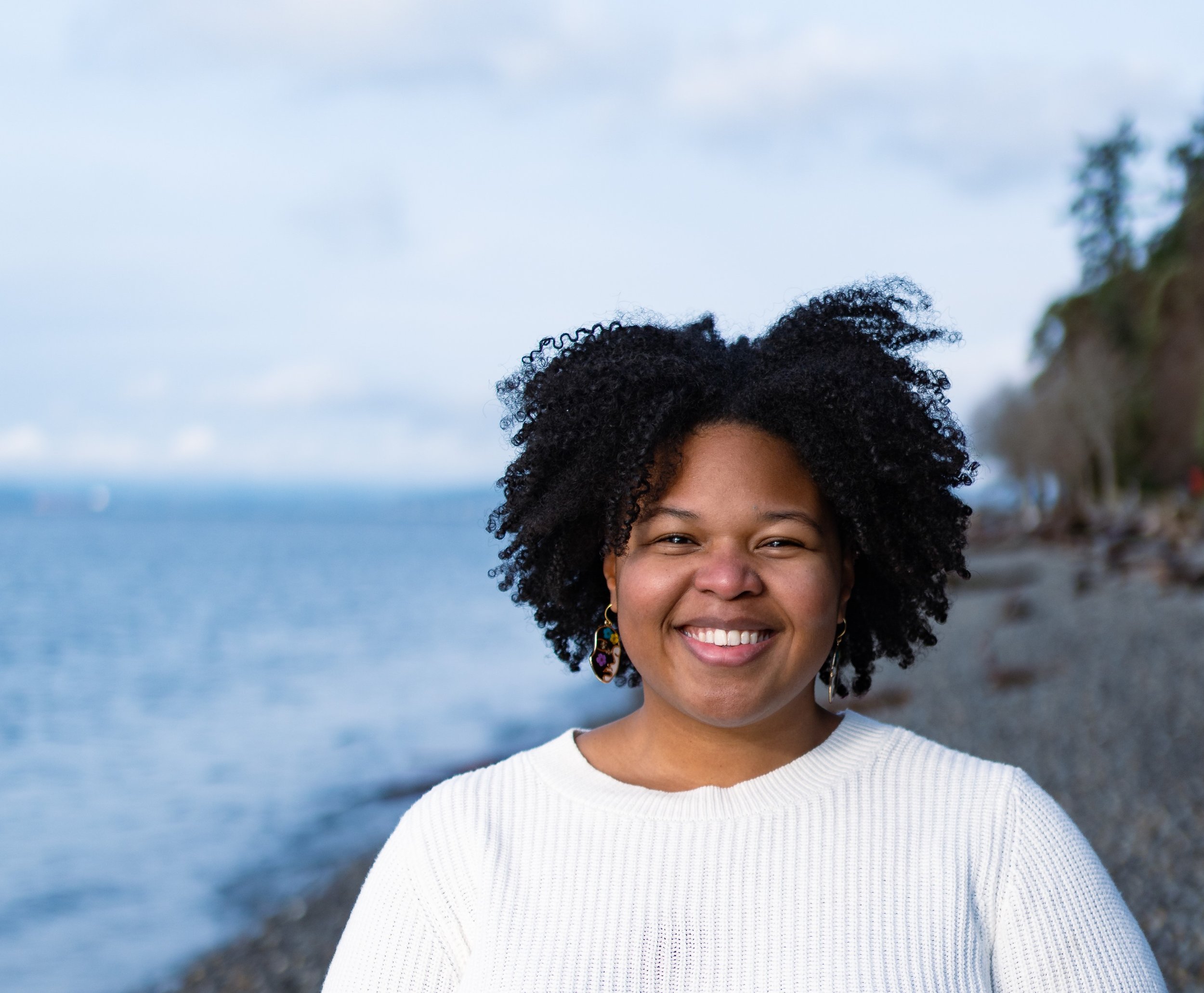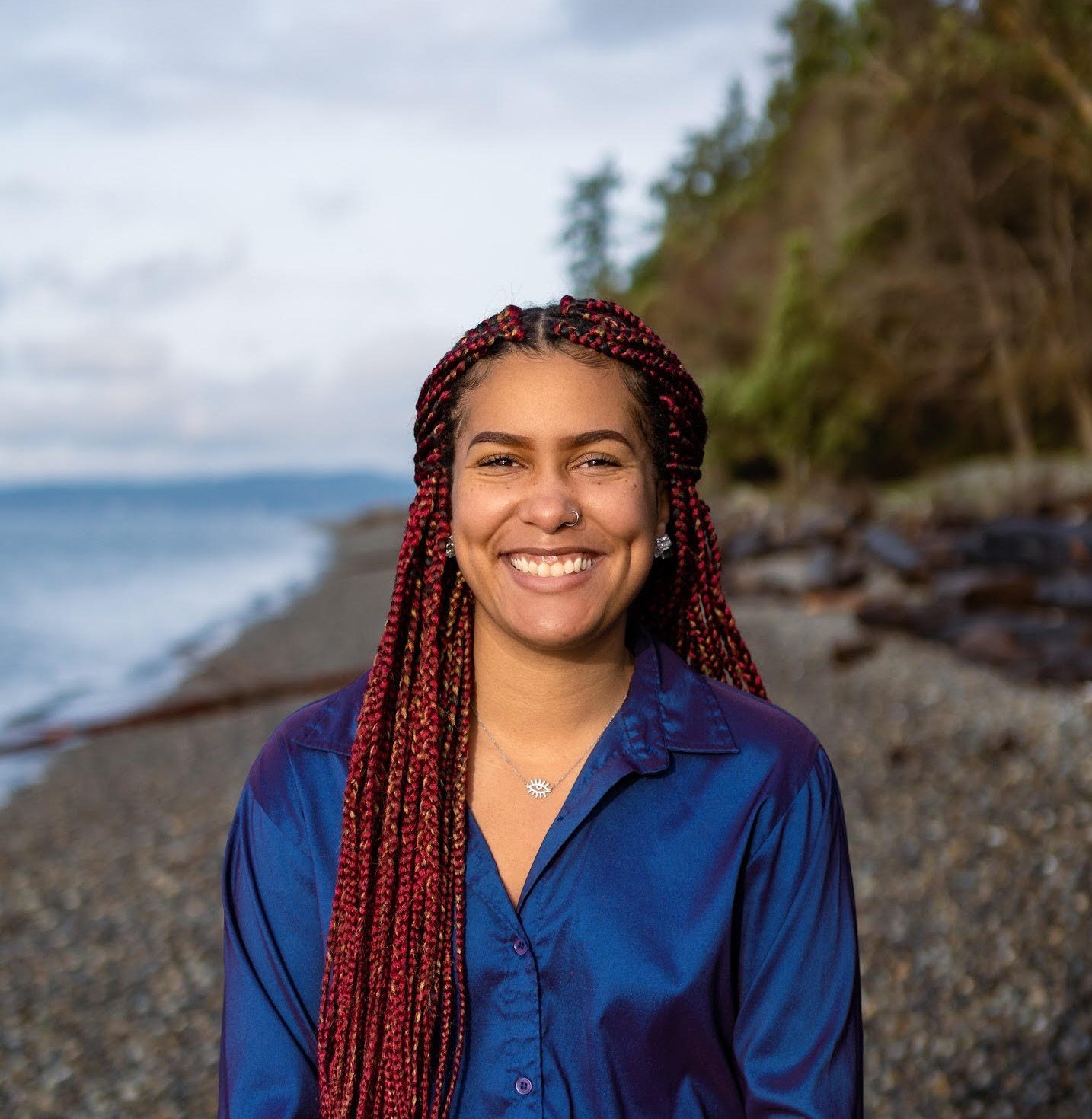Building Community: Sea Potential’s Drive for Representation
By Leah Shamlian
Could you tell me about yourselves and the work that you’re doing?
Ebony: I grew up outside and learned to foster a very positive relationship with outdoor spaces. After college, I found my way to the West Coast, where I met Savannah. At our last job before starting Sea Potential, we realized that we had a shared vision to connect BIPOC (Black Indigenous People of Color) youth to marine science, which soon expanded to the maritime world as a whole. We didn’t know how to run a business, but after the Black Lives Matter movement of 2020 happened, we were like, Okay, let's just go ahead and try to put our ideas out there into the world.
Savannah: Early on, I had an interest in the environment. In second grade, a teacher/family friend recommended that I become a marine biologist. I had no idea what that meant, but it really stuck with me. Going to a predominantly white university was quite a bit of a culture shock: I really noticed the disconnects there were for people of color in environmental spaces – politically, professionally, academically, and even just in community-based conversations and decisions. I faced a bit of imposter syndrome through that experience, but was even more excited to meet Ebony afterwards because her passions aligned with mine.
At Sea Potential, our mission is to cultivate a full cycle of BIPOC representation in maritime, which we define as any career path connected to water. We have two main tracks for carrying that out. My other role is Director of Youth Engagement, and that track of our company is focused on helping youth foster heart-based connections to marine and aquatic environments through acknowledging individual and generational trauma that exist in those spaces, incorporating tools for healing, creating more opportunities for positive experiences around water, and doing some maritime career exploration with them.
Ebony: And our second track is working with maritime organizations and businesses on their workplace culture to make sure that they're promoting representation over assimilation in the workplace.
Can you talk about how those two programs connect and how they build off of each other?
Savannah: We both had an interest in working with youth right away, but we realized we can't get youth excited about potential career paths that aren't conducive for them to exist in; it felt unsafe and not right to be leading youth into those career paths. And knowing our own experiences as Black women, trying to enter marine spaces and learning more about the maritime industry in Washington State as a predominately white male space, we wanted to do something about that as well.
Ebony: That's what we mean when we talk about the full cycle of BIPOC representation: trying to hit all the different areas within the pipeline. And we thought that these two tracks could cover a lot of that.
Ebony and Savannah
What have your experiences as women (and women of color) in ocean science and the maritime world been like?
Ebony: It's so intersectional: I can't separate my identities. My first career, I was in Florida doing wildlife rehabilitation and environmental education. It was predominantly women in the space, which was beautiful because we had a lot of shared experiences. But still, I think I was the only person of color out of over a hundred employees. I felt like I was representing more than just myself, feeling like I had to counter whatever stereotypes exist. I didn’t get past that until I met Savannah; that was the first point in my career where I was actually around people of color – only like five people, but still a little group that allowed me to feel like I could show up as my authentic self.
Savannah: I feel like being a woman in marine science wasn't too much of an obvious barrier in the settings that I was in. But as a woman of color, I faced quite a bit of imposter syndrome and the pressure of feeling like you're representing all Black women or all Black people, or even all people of color if you're the only person of color in a space. I sometimes was afraid to ask questions or reveal what I didn’t know, which stunted my own growth. I felt a lot of pressure to be excellent right off the bat. Ebony, I believe, was the first Black woman who I've met who was also interested in marine science, so yeah, it was kind of a big deal.
If you could do anything, what would your utopic vision look like for Sea Potential?
Ebony: We’ve talked about being like a YMCA, having a facility and running a lot of different programs. We want to get to a point where we can share all these things that are inspired by community and those experiences around water. All communities have this knowledge about water and how important it is and the cultural relationships to it. I can just imagine what our water systems would look like or what the maritime industry would look like when there’s innovation inspired by community and people of color and marginalized identities.
Savannah: Yeah, outside of focusing on developing the workforce, we want to really get everybody involved in strengthening their relationship to water, remembering their cultural connections to water, and promoting stewardship in general.
Leah: I'm glad you mentioned that cultural connection to water. I guess you could say the same thing about other types of environments as well, but water is so vital.
Savannah: Yeah, we love telling people that water’s our first home. You know, think back to the womb – water nurtured you first. We should have a really strong relationship with water throughout our whole life.
Is there anyone in particular who inspires you?
Ebony: I really like Ayana Johnson. She's a really dope Black woman in marine science, and she does a lot of policy work. I also really love the book Undrowned, by Alexis Gumbs. We even create activities based around that book; it’s really inspiring to look at the interconnectedness between human and non-human species, particularly aquatic species.
Savannah: We also really like the book Undercurrents of Power: Aquatic Culture in the African Diaspora by Kevin Dawson. We’re so inspired by the work and research he's done. But for me, when I look for inspiration, I mainly look to community, people whose passion and community work I’ve seen firsthand. I think that is what really inspires me to keep going and to join them in creating the future that we want to see.
How do you hope that you can be an inspiration to others? What impact do you want to have on the wider community?
Ebony: It’s really cool to me when people come talk to us and say, Your work is inspiring, I wish I had someone like you to support me when I was going into the maritime or marine science fields. Or to have someone come up and be like, Oh my gosh, I want to join a program. When people see the value in the work that we’re doing and it makes them feel safer, that really is inspiring to me.
Savannah: I think something interesting is that the older generations we connect with seem pleasantly shocked at the work we're doing. But for the younger generations, I really just want to normalize what we're doing. I like to spread the message to them that they can do what we do too. The fact that we're in this position and doing the work we do shouldn’t be shocking to them, but like, Oh yeah, I can do that as well.
Ebony: We like to say that we envision a world where our services are no longer needed in the same capacity, where there is no need for us to come in here and shake up the rules. Where everyone can do that for themselves and everyone is listening to each other and creating together.
Is there anything else that readers can do to support your vision?
Ebony: Knowing about the work that we do and sharing that with others. Letting others know that they can start this in their own hometowns or countries or whatever the case. You can reach out and we can share and talk and gather resources together and make sure we're standing in solidarity.
Savannah: If people have connections to companies or organizations outside of Washington State that are interested in doing this work, we're always open to that. We view ourselves as community connectors, creating bridges between a bunch of different people, so we always love networking. And I'm also going to drop a link to our donation page, because that's also always welcome.
Ebony: I feel like it's so hard when people ask this question because it's like, no, how can we help you? Like, use us as a resource, contact us if you need something. We just want to help people.
Ebony and Savannah
Follow Sea Potential’s work on their website and Instagram @sea.potential




